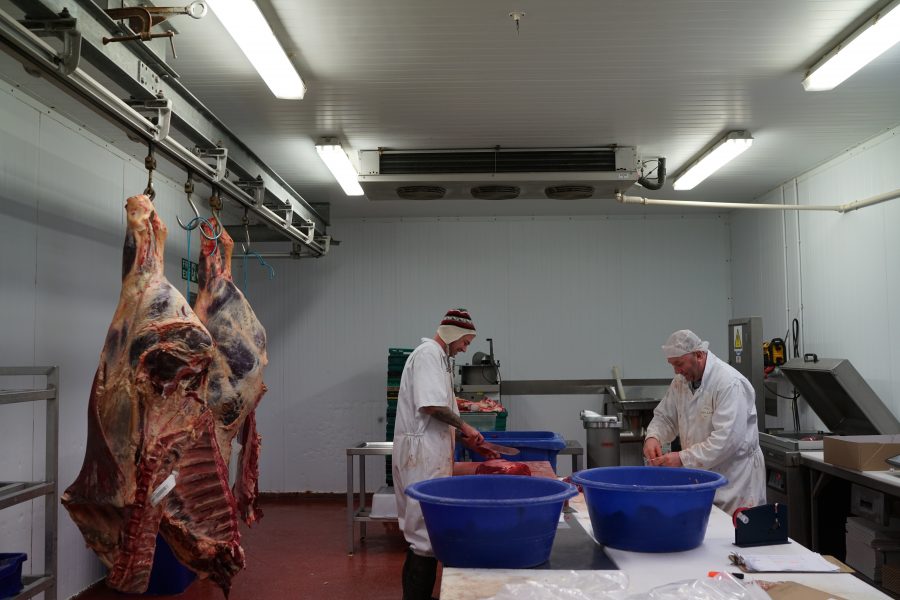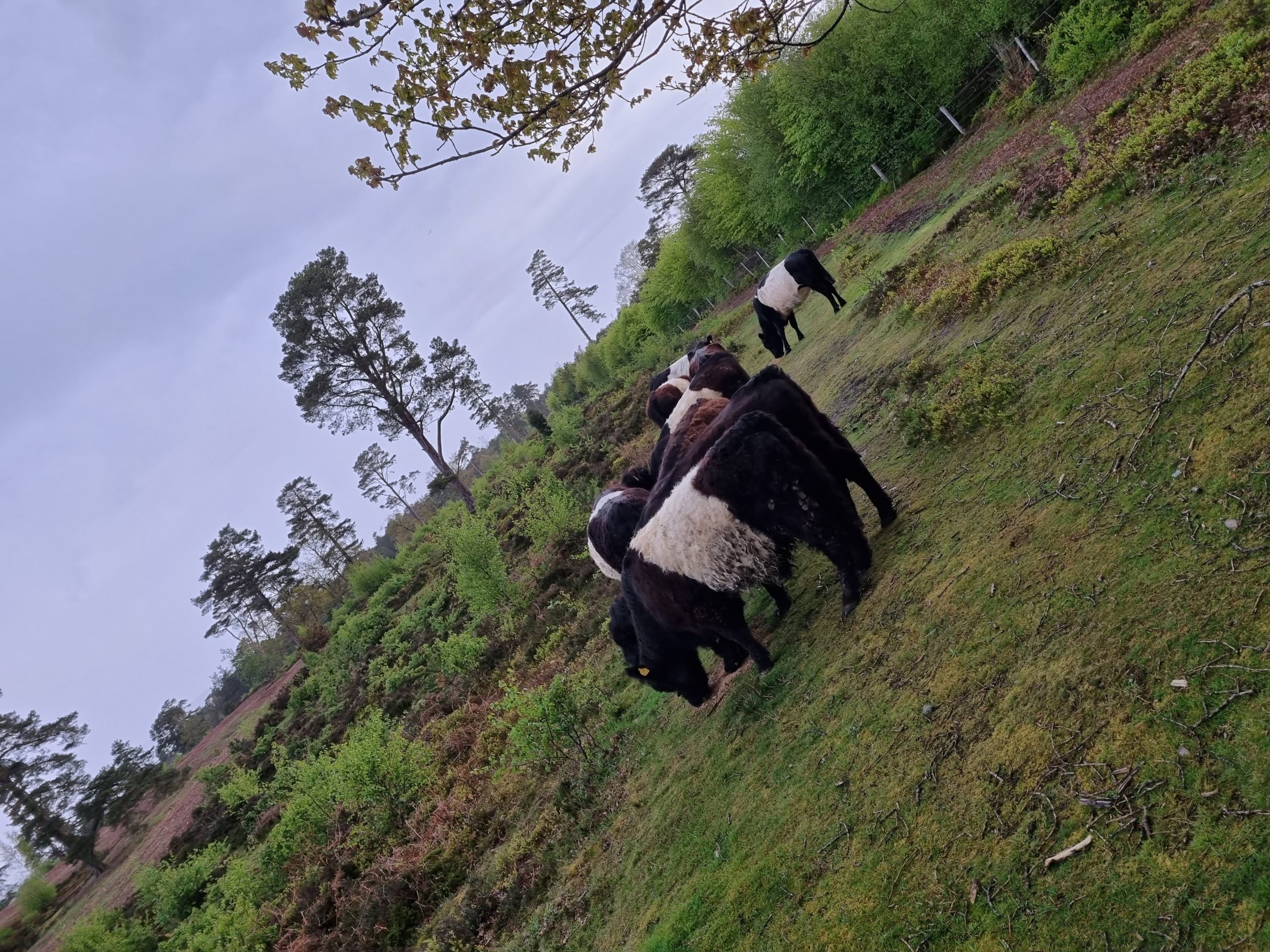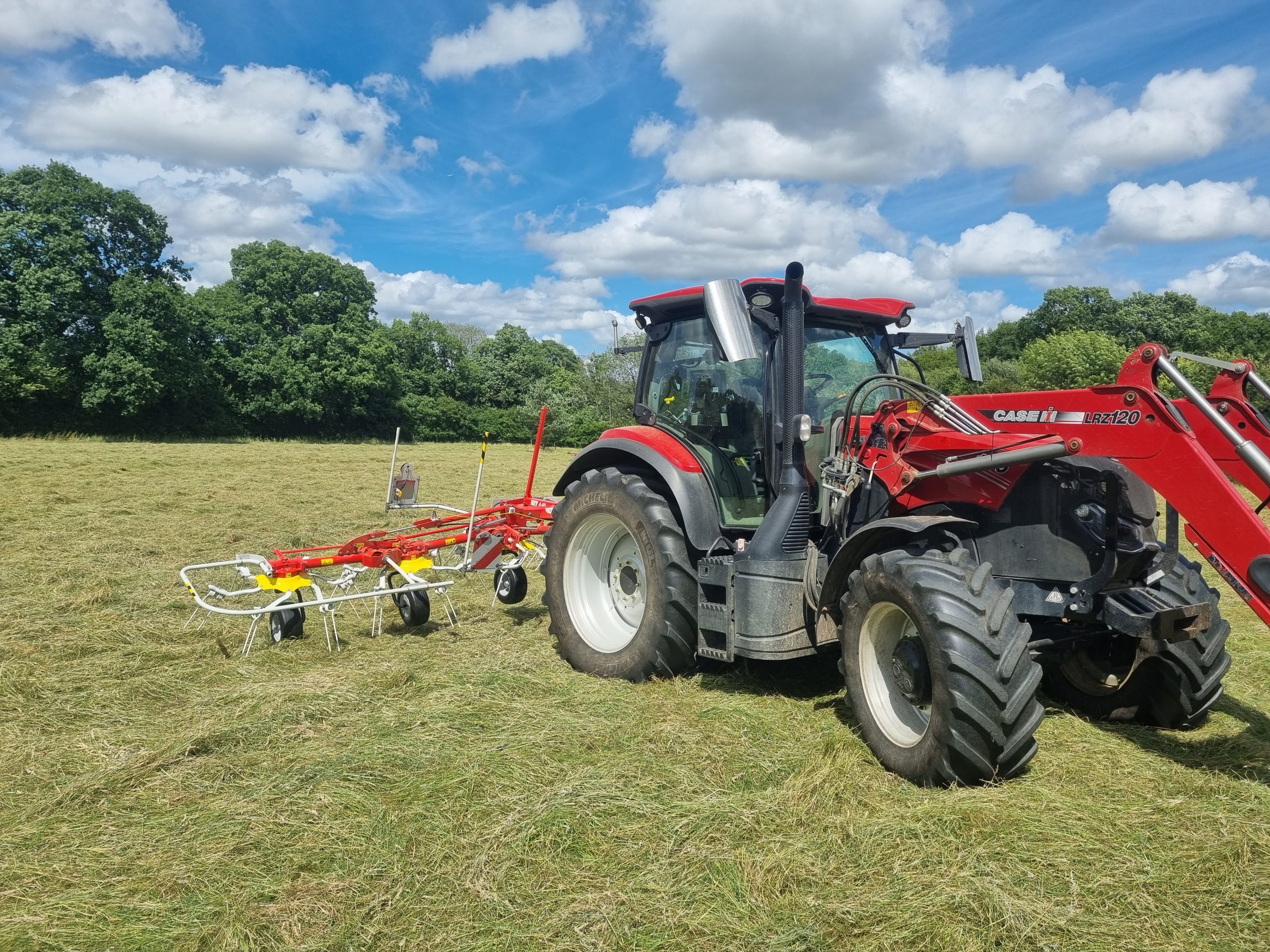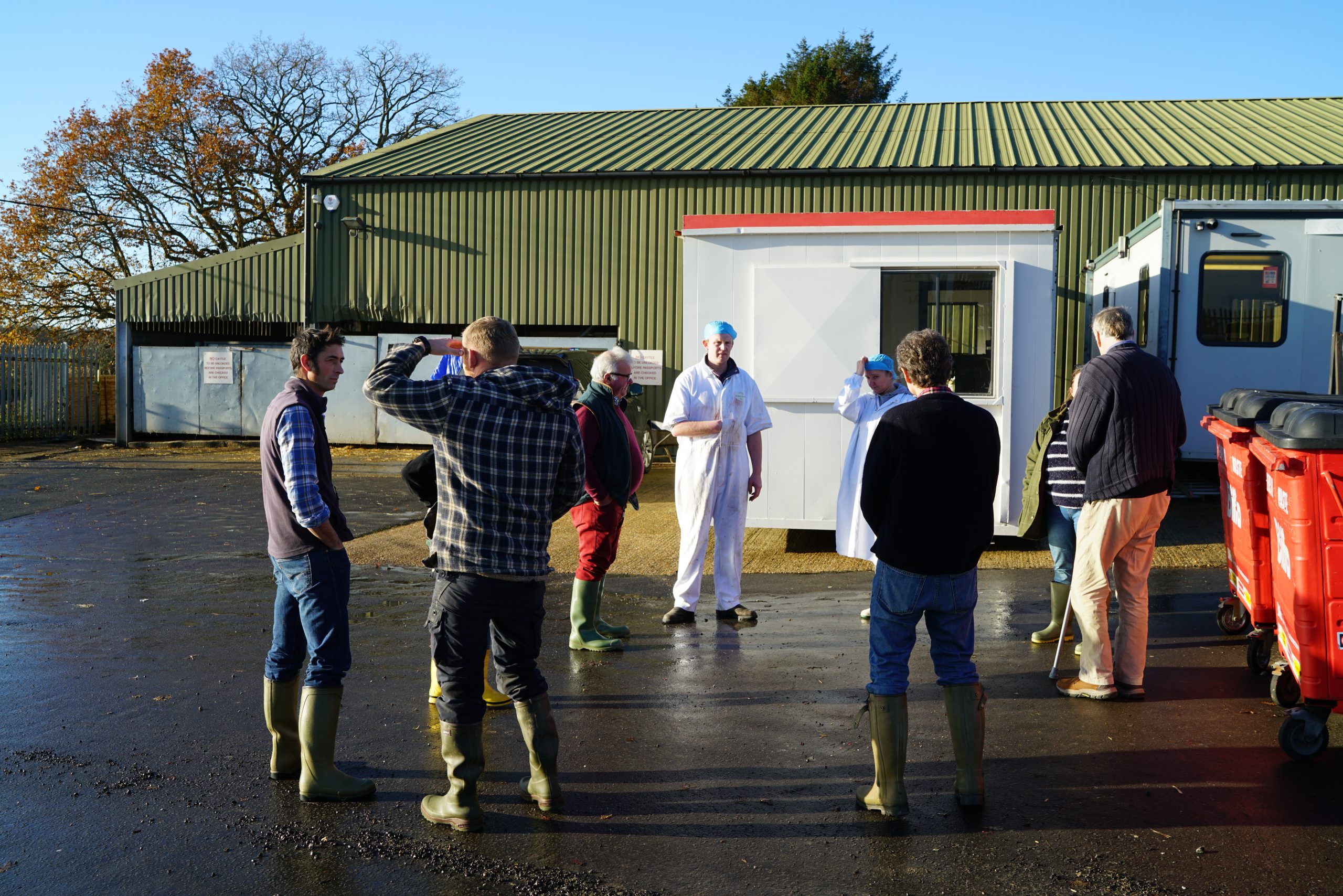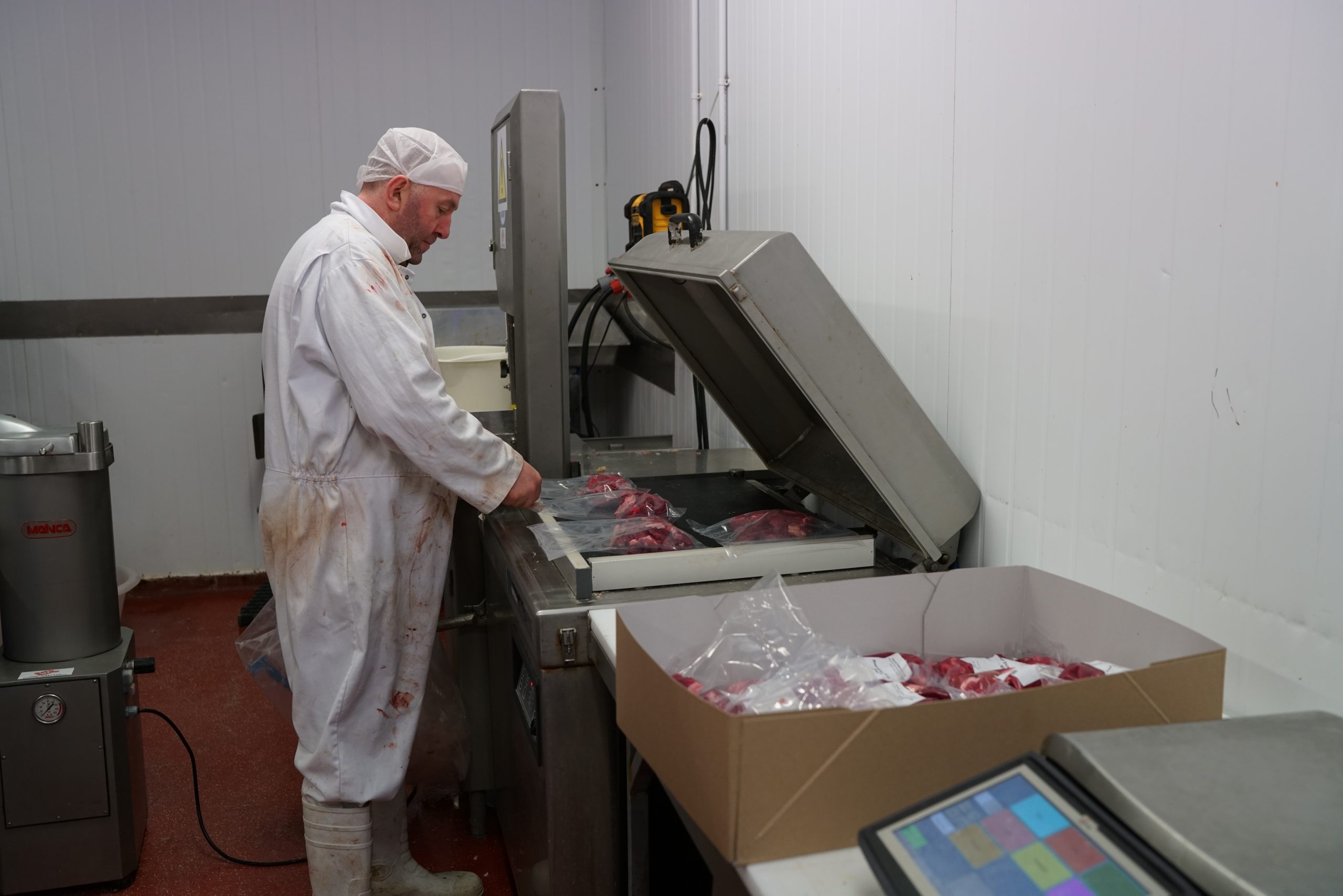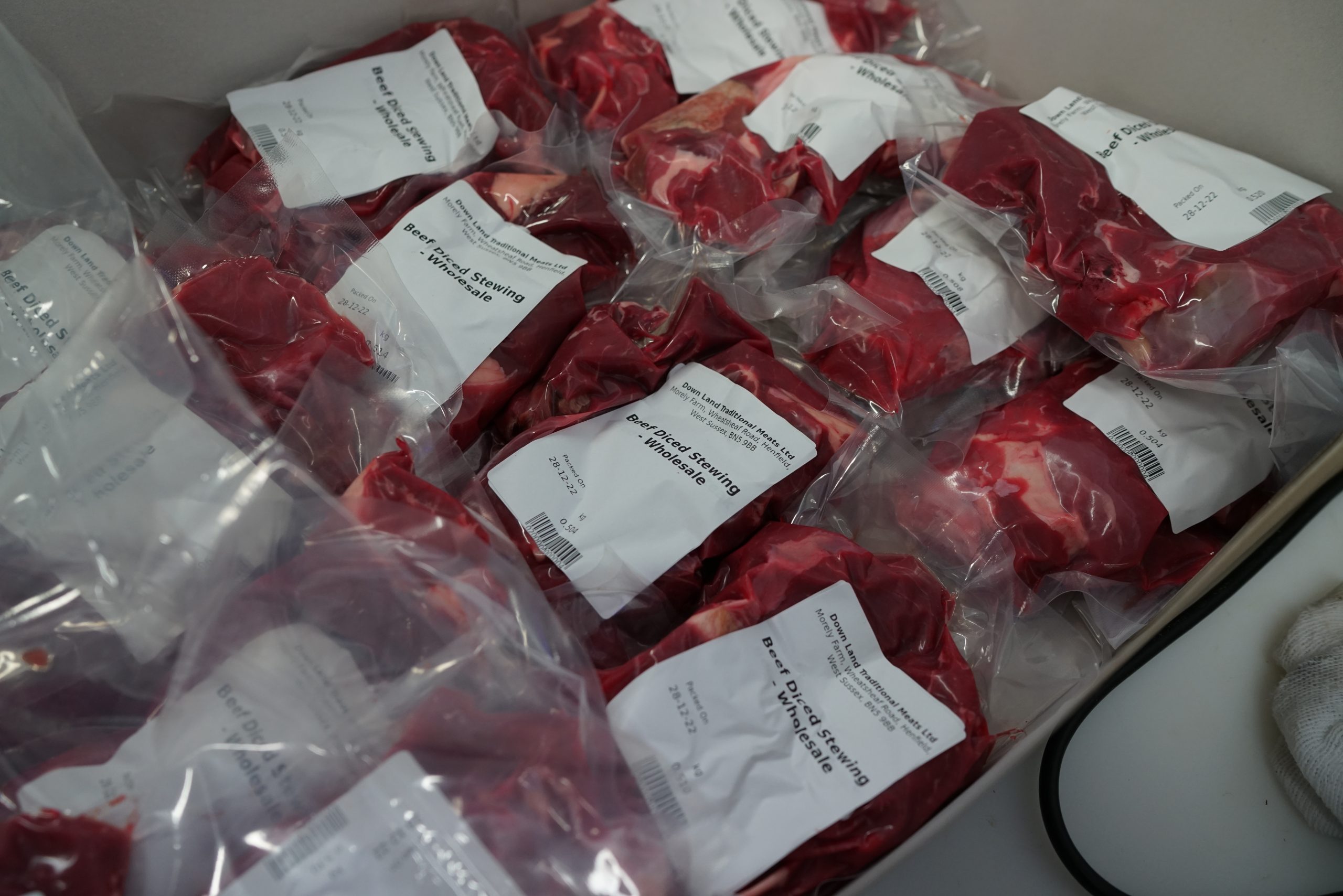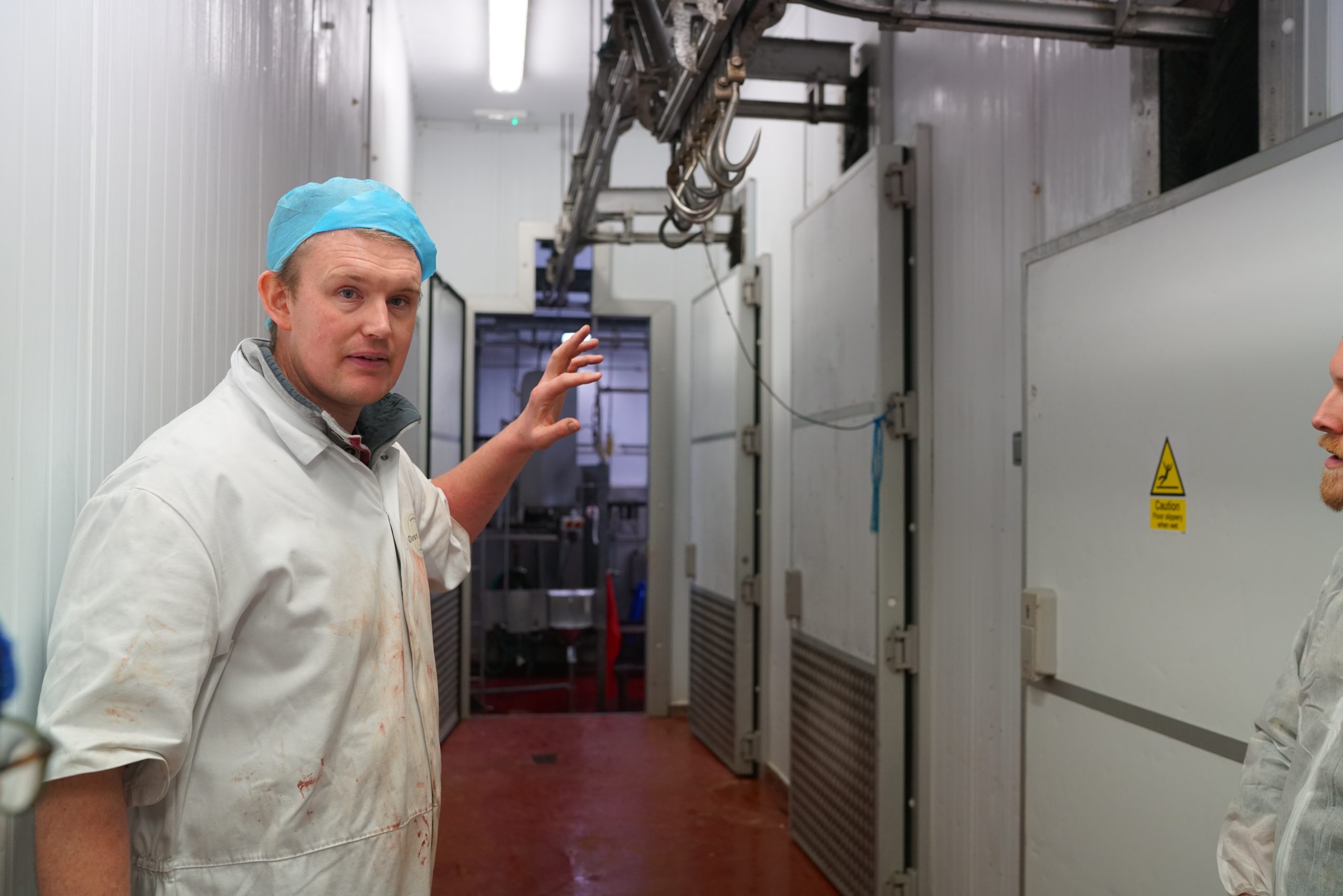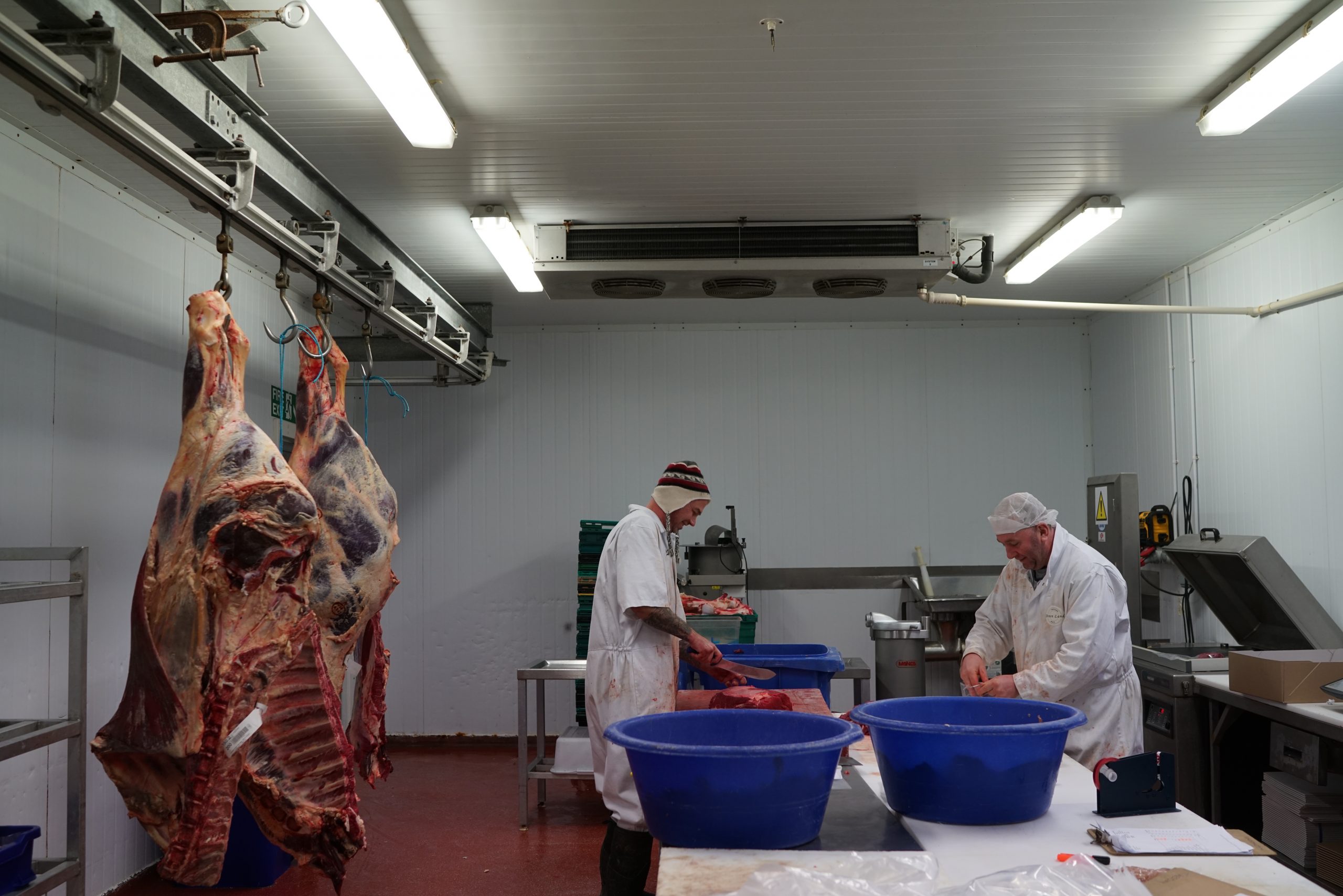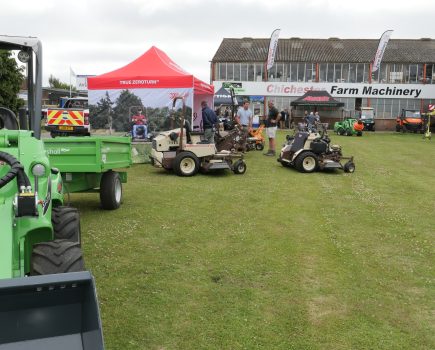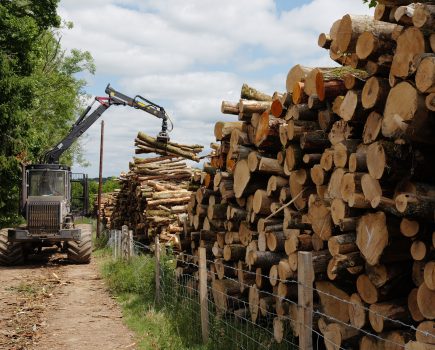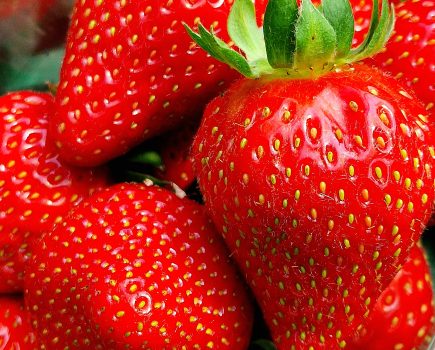This month Nigel Akehurst visits Downland Traditional Meats at Morley Farm in Henfield, West Sussex, to meet Luke Smith and find out more about his abattoir, butchery and farming business.
I visited the Downland Traditional Meats abattoir back in December as part of a small group of local farmers and members of LARK (Local Abbatoirs R Key) exploring alternative options in the wake of Tottingworth’s decision to close in January.
Leaving our small family farm in Boreham Street it took us approximately 49 minutes door to door, including a slight detour thanks to some questionable navigation by Google Maps.
We eventually arrived at Morley Farm, located off the main Henfield road. The site is set down a long gravel track across farm land which leads to an enclosed yard. In the middle is a large agricultural building that houses the lairage, slaughter house, fridges and butchery.
We park up and head towards a couple of temporary buildings, where we are greeted by the business owner Luke Smith and Sally Biggs, a member of his team who handles sales and logistics. As we wait for a few other members of the group to arrive, we watch a farmer turn up with a livestock trailer and back onto the lairage to unload a couple of cattle. Reassuringly, the process looked straightforward, with plenty of space to turn, and the drop off went without a hitch.
When everyone had arrived we moved inside one of their cabins, where Luke explained a bit more about his own farming background, the abattoir and what he was doing to try to help farmers like ourselves carry on selling our meat direct to the public.
The abattoir had been “ticking along nicely” since he had taken it over in September 2021, said Luke, but demand had rocketed since the news broke about Tottingworth.
“From a personal perspective I think the news is a complete disaster,” he said, referring to the many local farmers, smallholders and butchers who will no longer have access to a local cattle and sheep abattoir in East Sussex.
However, he said they were trying to make the best of a “not great” situation.
“We are expanding the business to help and moving from killing three days a week to four days from the end of January,” he said.
To do this he is taking on additional members of staff and moving to killing pigs only on a Monday and killing cattle and sheep from Tuesday to Thursday, he explained.
By killing on a Thursday he hopes to support people that are buying out of Hailsham Market on a Wednesday.
“They can get them here on a Wednesday and lairage them with us and we can kill them on a Thursday. That’s what we’re going to try to do and we’re going to start that from the end of January,” he said.
Luke acknowledges that February might be a “tricky” month, while they iron out any teething issues with the new system and put two additional slots into the slaughter hall. He stressed that the more notice farmers could give, the better the system would operate.
The conversation in the room turned to deliveries and Luke explained that they currently deliver meat back to customers throughout the South East. They operate two lorries and a van and deliver weekly to Steve Smithers in Hellingly.
There followed a short discussion around the idea of setting up a collection point at Hailsham Market, something that farmers and Luke agreed could work well in the future subject to agreement from parties such as Hailsham Market and DEFRA.
Butchery and abattoir tour
We put on white suits, boots and hair nets before following Luke into the main building. We walk down a white corridor and enter a large modern butchery, where two of Luke’s butchers are busy dicing, weighing and packaging up stewing beef for a customer.
“Since taking over the premises we have invested a significant sum into the butchery, with all new weighing and labelling kit,” he explained.
We then head back to the main corridor and walk past a series of cooling fridges towards the main slaughter hall, a large double height space up into the eaves. As we enter, the slaughter men (and one young woman) are busy at work on the line. The workforce is 100% English.
The whole set up seems clean and professional. Luke explained how it worked in terms of identification, which is a question they are asked regularly and an area they pride themselves on (to ensure customers get the same animal back).
“When you bring your animals in, your name and number of animals goes on the whiteboard outside. The lad in the lairage enters the details into a computer in the exact order they will kill them in, which comes through to the computer screen in the slaughter hall.
“In terms of cattle, they are on the rail in terms of the order they are killed. The tags are checked against the passports. The passports are all then numbered in terms of their kill number and that system will stay with them all the way round the line,” he said. Weighing is also carried out in the same room.
On the topic of offal, he explained: “If you haven’t had any rejections on the returns you get all the offal; tongue, cheeks, kidney, lung, tail, heart, which has to be collected ideally the next day,” he said. If farmers don’t want their offal it is either offered to other customers or goes for dog food; nothing is wasted.
Sheep skins are another byproduct that can be collected (at no cost) and Luke said they will even salt the skins for customers if they are unable to collect on the same day.
During a break in proceedings, we head out into the lairage and Luke shows us the sheep and pigs’ pens and explains that they kill both organic and non-organic animals, starting with organic animals at the beginning of the day.
Concluding our tour, we head back to the cabin and take off our white suits and put our farm boots back on. After a short group chat we all leave feeling a lot more optimistic about continuing our direct meat sales in 2023.
Farming background
To find out a bit more background information and hear how things are progressing at the abattoir, I give Luke a call some time later.
I learn he grew up helping his mum, Amanda, who has always worked on livestock farms, while his dad, Ian, worked in construction. On his 18th birthday his parents bought him a couple of Jacob ewes, marking the start of his farming journey. He added a couple more ewes and rented some fields in a local village.
Like a lot of young farmers, Luke knew he would need to get a full-time job to support his farming ambitions. He started out as a trainee sales rep at Agricultural Central Trading, better known in the industry as ACT, selling agricultural products to farmers (his appointment was featured in South East Farmer’s December 2014 edition).
Any spare money or time was invested into his own fledgling farm business as he continued to build up his sheep numbers and started adding value by selling boxes direct.
In 2017 he moved to ABP as a trainee cattle buyer, which allowed him to continue to earn money but also have more time on his own farm. He enjoyed the more practical role and spent time travelling around farms in the West Country, selecting cattle and sheep for slaughter.
After a couple of years he was given a call by a recruiter and asked to go for a job interview with Genus. Getting the job, he joined as an area sales manager and began managing their salesforce in Dorset and Somerset. That gave him the next step up, allowing him to work from home a couple of days a week.
Before leaving ABP he spent his last year working in Guildford, in their operations department, where he learnt a lot about the abattoir game in terms of things like transport and logistics, he said.
By this point, he was being offered grazing projects by the National Trust and had bought his first herd of 12 Dexters. Then another project came up and they wanted Galloways, so we bought a herd of Galloways, he said.
During this process, Luke was adding value to the end product by boxing up the animals and selling them direct to the public. He used a local abattoir and butcher friend John, who let him come in and help do the labelling and sorting to keep costs down
A couple of years after Luke had joined Genus, the farm business had grown to a point where he needed to focus on it full time. Then the abattoir came up for rent in September 2021 and he went to view it. Luke was initially hesitant but ultimately realised it made sense to take it on.
“I had more animals than I needed (for the box scheme) and was selling them at market, which from an animal welfare perspective didn’t feel like the best thing to be doing,” he said.
“I remember hearing about things like live export and non-stun Halal slaughter” he recalled, adding that he believed both practices should be banned.
Taking on the running of the abattoir and partnership farming business model
Taking on the abattoir was a big learning curve, he said, but his experience at ABP, coupled with being new to the job, helped attract more farmers to start using them.
Luke now spends most of his time at the abattoir, with his partner Georgina Forrest carrying out the day-to-day work on the farm with one other full-time member of staff.
The farming business now encompasses nearly 2,000 acres of land within a five-mile radius of Dorking, Surrey. Most of the land is farmed on various partnership agreements, (some of which he pays for) and conservation grazing projects where he is paid to graze.
The majority of their suckler cows are Galloways (a closed herd of 43), with a recent acquisition of another 30 or so Blue Greys run as a separate herd. Nearly all the offspring are reared to fat off a grass-based diet with some waste foods, such as bread, fed to housed fattening cattle when available.
All the fat animals are processed through the slaughterhouse and 90% of the products go to customers in London (either as carcasses or in primals). This year they will lamb down around 700 ewes, mostly Suffolk Mules with around 45 Jacobs, and they also rear Large White and Landrace pigs, which they buy in as weaners or close to finish to put through the abattoir once fat. These then go to customers in the London and Surrey area.
Luke is a huge advocate of the partnership model of farming and works closely with the National Trust. He has recently taken on a 940-acre block where he is carrying out various grazing projects.
On the phasing out of Basic Payments, he doesn’t see it as a problem for his own business and says he only receives it on one 100-acre farm where he pays an inflated rent.
Most farmers and land owners are being forced into countryside stewardship agreements to make ends meet, he said, but they still need livestock to graze the land, a model that has proved a sustainable and profitable endeavour for himself.
Update on the abattoir
I asked how things were going.
Luke replied that it’s been a slow start to the year and that he has yet to see a lot of talk of new customers actually materialising in his ‘book’.
“In two weeks’ time I’ve only got 30 sheep booked in,” he said, albeit adding that he is confident that figure will rise to 300 or 400.
The conversation tured to the recent dip in lamb prices, which Luke thinks may encourage more farmers to start boxing them up and selling direct again.
He also brought up a recent NFU webinar on mobile slaughterhouses, which he thinks are great in theory, although he hopes people don’t overlook what they have in front of them. He also feels like more support should be forthcoming from government to help with the increasing regulation and costs for existing smaller scale slaughterhouses like his own and Forge Farm Meats in Southborough, Kent.
The future
Ultimately, Luke feels optimistic about his plans to expand and take on more customers. Having visited his abattoir and spent time getting to know Luke, I am sure his efforts to scale up will be rewarded as more farmers like myself start to use him. I only hope that our government finally wakes up and starts doing more to support our local food infrastructure before it is too late.
Farm facts
- Rents around 2,000 acres within a five-mile radius of Dorking Town Centre. Mainly conservation grazing agreements
- Two full-time staff on the farm side of the business
- Herd of 70 native breed suckler cows (split into two closed herds) plus some bought-in stores
- All grass fed and mainly grass finished (using some food waste when available)
- Out winter around half the cattle on various grazing projects
- 700 breeding ewes (mainly commercial Suffolk mules with small number of Jacobs for niche markets)
- Buy in straw for winter bedding but make all their own silage and hay
- Direct meat sales business selling 25 to 35 lambs, 15 to 20 pigs and two to three cattle a week into customers in London and Surrey.
- Took on the running of the abattoir and butchery site at Morley Farm, Henfield in September 2021
- Has invested a significant sum in modern labelling kit to improve the butchery facility
- Moving to four days a week killing from end of January
- Fourteen full time staff in the abattoir, butchery and transport
- Deliver meat throughout the South East using two lorries and a van
- Luke Smith

